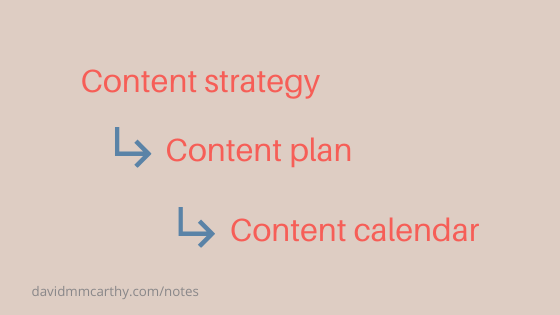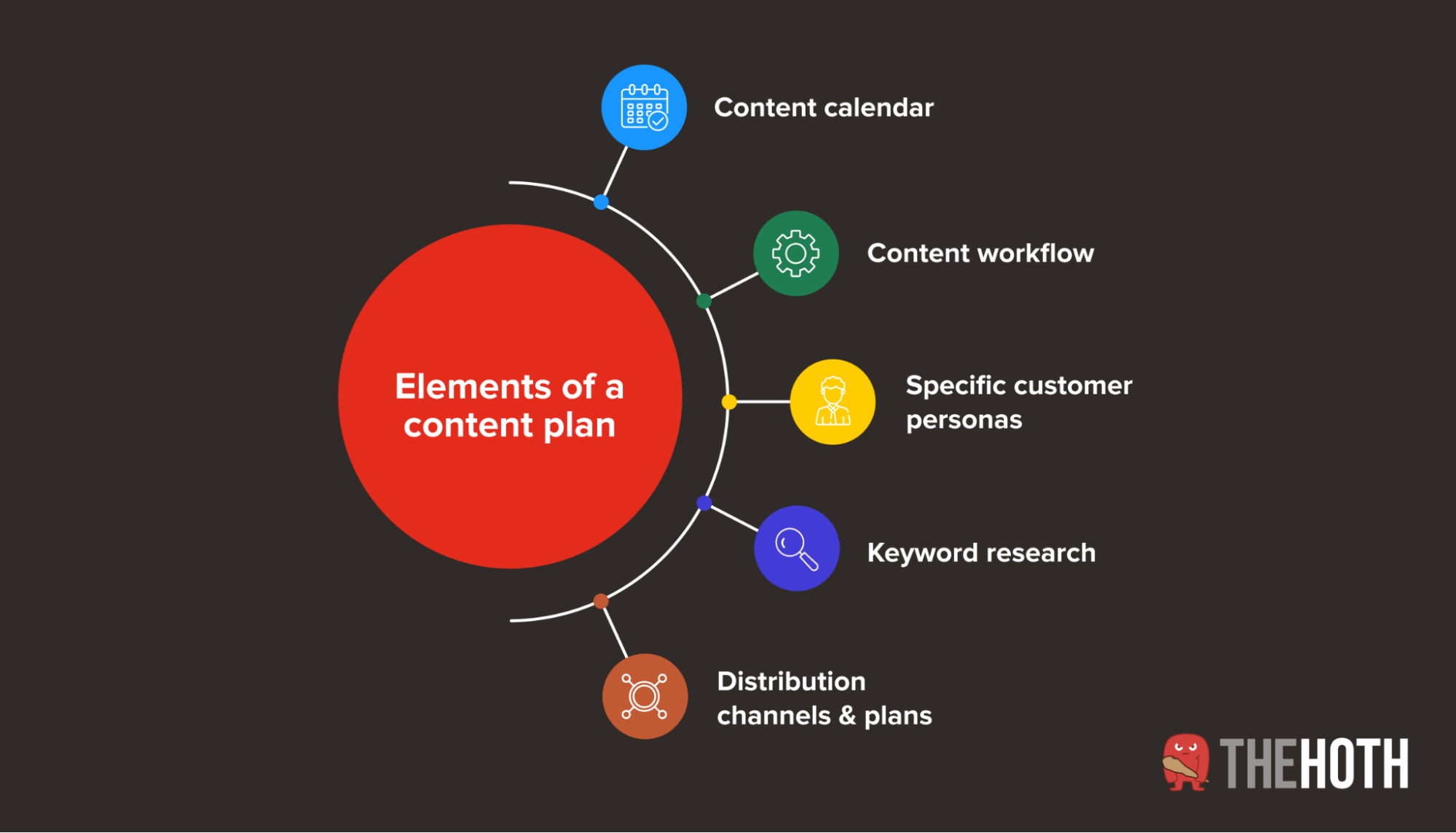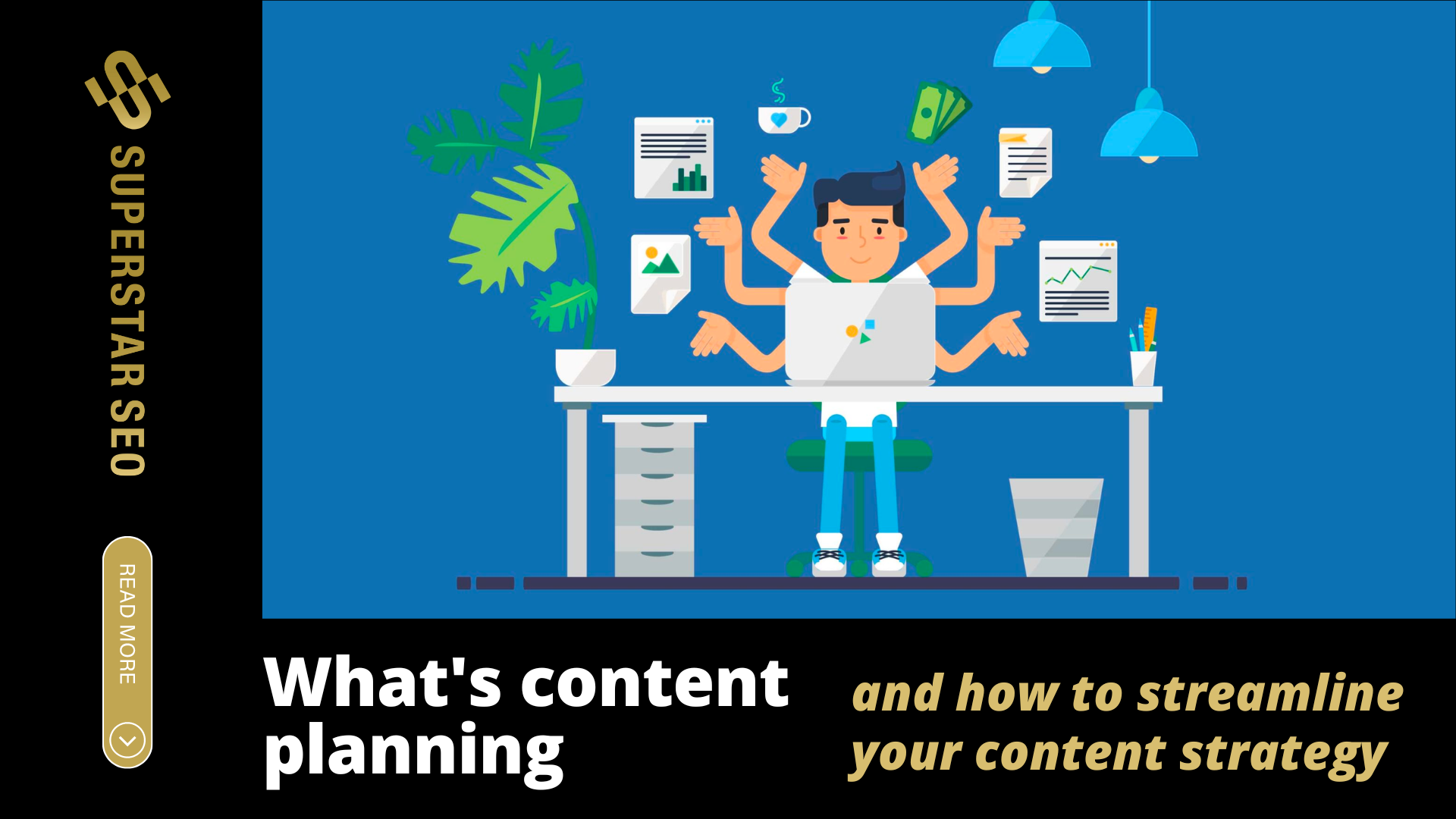What's Content Planning and How to Streamline Your Content Strategy
Content planning is an essential part of any successful social media strategy.
By creating a valuable content plan, you are able to create content in advance and have a template for each piece of content you will produce.
This not only saves time but also helps ensure that your social media content is consistent and follows the same pattern every time.
Content planning can also help you develop a comprehensive content marketing strategy, which will help guide your social media platforms marketing efforts.
The content planning process includes
researching relevant topics,
choosing suitable keywords,
creating interesting visuals
writing compelling copy, etc.
Furthermore, having a well-thought-out plan allows you to be more organized when producing each individual social media post.
What is Content Strategy?
Content strategy is a comprehensive plan for creating, managing, and distributing organic content to achieve specific business goals. It involves defining your target audience, understanding their needs, and delivering valuable content across various platforms. A robust content strategy ensures that your content aligns with your brand's goals and resonates with your audience, ultimately driving engagement, conversions, and growth.
Is It the Same as a Content Strategy?
Content plans and content strategies are both important for successful content marketing.
The main difference between a content plan and a content strategy is that a content plan focuses on the what, when and where of content creation process, while a content strategy focuses on the why, how and who.

A content plan is used to create a specific piece or pieces of content for a certain purpose or audience.
A content strategy, on the other hand, is an overarching set of goals and objectives that helps guide the development of multiple pieces of related content over time.
Both are essential components in any successful content marketing effort as they help create effective, targeted messages with clear goals in mind.
Why Content Planning is Important
Effective content planning is a cornerstone of successful content marketing. It involves strategizing, organizing, and scheduling content to ensure consistency, relevance, and alignment with overall business goals. Here’s a detailed look at why content planning is vital, broken down into several key areas:
Ensures Consistency
Consistency in content publishing helps build trust and authority with your audience. Regularly updated content keeps your brand at the forefront of your audience’s minds, fostering a loyal following. An editorial calendar can help you maintain this consistency by providing a clear schedule for when and where your content will be published.
Aligns with Business Goals
Content planning allows you to align your content with your business goals and marketing objectives. Whether your aim is to increase brand awareness, generate leads, or boost customer retention, a well-thought-out content plan ensures that each piece of content serves a purpose and contributes to your overall strategy.
Improves Resource Management
Planning content in advance helps manage resources more efficiently. You can allocate time, budget, and personnel effectively, ensuring that each content piece is of high quality and delivered on time. This foresight helps avoid last-minute rushes and potential burnout among team members.
Enhances Audience Engagement
Understanding your audience’s needs and preferences is crucial for creating engaging content. Content planning involves thorough audience research, allowing you to tailor your content to meet their interests and pain points. This personalized approach can significantly enhance audience engagement and satisfaction.
Facilitates Strategic Promotion
A well-structured content plan includes not only the creation but also the promotion of content across various channels. By identifying the most effective marketing channels and scheduling promotional activities, you can ensure that your content reaches the right audience at the right time, maximizing its impact.
Boosts SEO Performance
Strategic content planning helps improve your SEO performance by ensuring that your content is optimized for search engines. By identifying relevant keywords and creating content clusters around core topics, you can enhance your site’s authority and visibility in search engine results, driving organic traffic to your site.
Enables Measurement and Optimization
Content planning includes setting measurable goals and tracking the performance of your content. Tools like Google Analytics allow you to monitor key metrics such as page views, time on page, and conversion rates. This data-driven approach enables continuous optimization, helping you refine your strategy based on what works best.
Reduces Stress and Improves Efficiency
Having a clear content plan reduces the stress associated with content creation. Knowing what needs to be done, by whom, and by when helps streamline the content production process, making it more efficient and less chaotic. This organized approach leads to higher quality content and a more focused team.
Supports Comprehensive Campaigns
Content planning is crucial for executing comprehensive marketing campaigns. By mapping out a content calendar, you can ensure that all pieces of content are interconnected and support the overarching campaign theme. This cohesiveness makes your campaigns more compelling and effective.
What You Need to Create a Digital Content Marketing Strategy
Brand Guidelines
Brand guidelines define the voice, tone, and style of your content, ensuring consistency across all platforms. They reflect your brand's personality and values, helping to create a cohesive brand image that resonates with your audience.
Editorial Calendar
An editorial calendar is a tool that helps you plan and organize your content creation and publishing schedule. It includes details like topics, content formats, deadlines, and responsible team members, ensuring a consistent and timely flow of content. Also, plan out your content ideas, blog posts, and social media posts in advance. This helps ensure a steady stream of high-quality content.
Content Clusters
Content clusters are groups of related content pieces centered around a core topic. This approach enhances SEO by creating a comprehensive resource on a specific subject, improving your site's authority and search engine rankings.
Marketing Funnels
Marketing funnels outline the stages of a customer's journey from awareness to conversion. Content should be tailored to each stage, providing relevant information and nurturing leads through the funnel to drive sales and engagement.
Competitive Research
Competitive research involves analyzing your competitors' content strategies to identify gaps and opportunities. Understanding what works for others in your industry can help you refine your own strategy and differentiate your content.
What Content Planning Tools Do Strategists Use?
Just like with anything related to digital marketing, strategists use different content planning tools to stay ahead of the curve.
Content strategists also utilize keyword research tools, like Moz Pro or Google Ads, to identify the right keywords for their content.
They might also employ SEO auditing tools such as Audiit, and Screaming Frog SEO Spider to ensure that their website is properly optimized for organic search engine traffic.
Additionally, they can use analytics platforms like Google Analytics to measure the performance of their content and make adjustments accordingly.
What Does a Content Planning Template Include?
What Is Your Goal?
When asking this question, it's important to consider what exactly you want to achieve.
Do you want more website visitors?
Are you looking to increase sales or generate leads?
Or are you aiming to build brand recognition?
Establishing clear objectives can help you create content that aligns with your business goals and helps you reach them.
Answering this question helps you focus on creating content that will be effective in achieving your desired outcome.
It also allows you to measure the success of your content marketing efforts by tracking metrics such as website visits, engagement rates, and lead generation.
Content planning can make a huge difference in helping businesses reach their goals, so it's important to ask yourself this critical question before getting started.
2. What Problem Will You Be Solving for Your Audience(s)?
You must consider who your target audience is and what problems they are facing.
You should research their needs and try to identify potential solutions that your content can provide.
This could include providing helpful advice, introducing new products or services, or simply educating people about a certain topic.
Once you have identified the problems you are trying to solve for your audiences, you can begin mapping out a plan for how to address these issues through content.
This will help ensure that your content is tailored to solve specific problems that your audience has and provide them with tangible value.

3. What Content Formats Will You Be Using?
One of the core components of content planning is answering the question: “What content formats will you be using?”.
This is important as each format has its own advantages and disadvantages and should be chosen carefully depending on the SMART content marketing goals and objectives of the campaign.
There are many different types of content formats to choose from, such as:
text-based articles,
infographics,
video tutorials,
podcasts,
webinars
and more.
Each type of content offers a different way to engage with customers or potential customers, so it's important to consider which format would best suit your audience.
Additionally, it's also important to consider how each format fits into the overall marketing strategy for your campaign and how it can be used to create a cohesive narrative.
By taking these factors into account when selecting content formats for your campaigns, you can ensure that your efforts are well-targeted and effective.
Bottom Line
Every company's content plan will look different. However, your content plan should cover some main components, as mentioned in this article.
Other things to consider when planning your content:
What channels will you publish on?
How will you manage content creation
What about the publication?
What makes your company unique?
How will you deliver your content?
Whatever the case, one thing is for sure – you need a content plan if you want to be successful.





